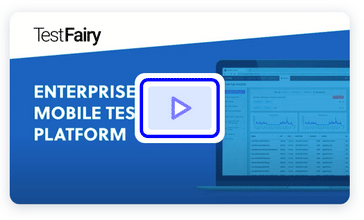The Google Play Store update around December 10, 2013, introduced a new feature that has created confusion for users and headaches for developers. An app was presented to rate with the question, “Want Quick Suggestions?” Android developers then noticed their hard-earned, high ratings drop off after this interface was introduced. Through Google+ discussions and online forums, developers discovered that a user who rated through the suggestion feature may have thought they were rating Google’s suggestion. Instead, the rating of the suggestion is actually calculated as an app rating.
Since we posted about this issue on January 1, 2014, we have continued to follow threads, discussions, and conversations that examine Google’s changes and the continuing negative impact on passionate Android developers. Unfortunately, a fair and accurate ratings system seems more difficult to attain. The current system seems to lead not only to confused user ratings, but also it rewards bad user behavior.
Appwared.com uncovered an unsettling trend in Turkey. They analyzed the user reviews for Where is My Water 2, Temple Run 2, Clash of Clans, Dragons of Atlantis, and Hay Day. For Where is My Water 2, they noted, “Believe it or not, 11 out of 15 reviews here are actually 5 STAR reviews!” Users rated it 1 star, but wrote a different, surprising review. They confessed that they gave a 1 star to have their review featured in the Google Play Store. Appwared.com translated several of the 1 star, attention-seeking reviews like this one by Canan Evran, “The game is an example of how a good game should be! Don’t bother that I gave 1 star, it’s because I want my comment gets seen.” A one-star review where a user’s poor intentions are stated should not be calculated or featured, and, if it has been identified in one country, is this bad behavior rewarded in other locations too?

Android developers have few options to deal with this problem. Android Police suggests the only option available to developers is to “flag these low-star, high-praise reviews as spam.” That is still a process that takes time, and, meanwhile, developers continue to watch their ratings fall.
Another dimension to the ratings issue is revealed in a discussion on Hacker News. Culturally and geographically, there are differences in how people rate performance. Raverbashing posted, “In Germany…A 1/5 would be the highest score, and 5/5 would be the worse score.” Several Norwegians posted that they would rate apps exactly the opposite with 5/5 as the best rating. If, as Android Police points out, users would “review apps honestly and consistently,” Android developers could relax.
With frustration increasing and little feedback from Google about the changes, developers are left to untangle data and examine any information to help them make sense of their diminished ratings. Is the “Want Quick Suggestions?” and featured reviews part of Google’s drive to generate more content for their sponsored endorsements? Last October, CNN.com discussed the possibility that “a person’s face could show up on any of the 2 million sites that are part of the Google ad network.” Most users are logged into their Google accounts when they are cruising around the Google Play Store. CNN.com notes, “Leave a review for an album you bought in the Google Play store and that is a usable Google+ endorsement.”

Regardless of Google’s intentions with these changes to the ratings system that seem to reward bad behavior and create confusion, there are some dedicated Android developers living in crisis mode. These developers would prefer to put their time, energy, intellect, and passion into perfecting apps for the Google Play Store.
Are you a developer who has identified 1 star reviews by users seeking 15 minutes of fame in the Google Play Store? Are you a developer who has experienced the same decline in ratings? Share your experience with us at support@testfairy.com.
Remember, sharing is caring!
Adobe Air app distibution
Adobe air beta testing
Adobe Air Logs plugin
Android
Android app
Android Development
android tv
aws
Beta Testing
call java from dart
call objectivec from dart
device farm
Extensions
flutter
Functional Programming
Functional Reactive Programming
gradle
instrumentation
instrumentation tests
iOS
iOS Development
Kotlin
native communication
Rx
Swift
test automation
TestFairy
TestFlight Alternative
TestFlight Android alternative
tests


